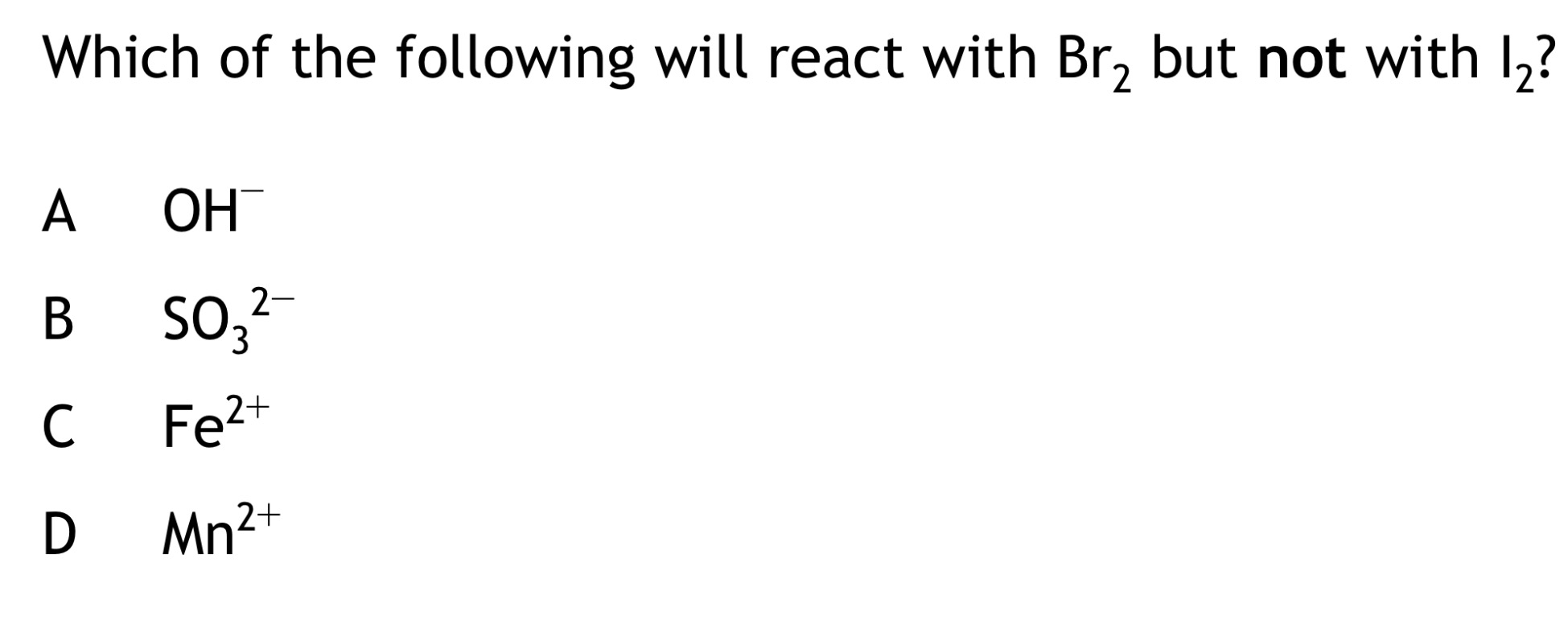My question comes from the answer (C) to this question:
Firstly, (correct me if I'm wrong please) I thought thatvthethat the answer could either be C or D since the other answers are negative ions which can't react with iodine or bromine since they (as diatomic molecules) have a full shell of outer electrons. Now, from looking at the question, I knew it had something to do with oxidation and reduction as well as displacement reactions, however, as iodine and bromine aren't on the reactivity series, we can't determine which would react with which metal. From there, I just had no more ideas. Could anyone provide me with a hint or a guide as to how to do this ?
